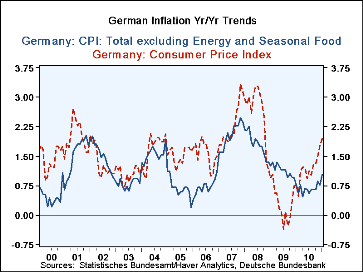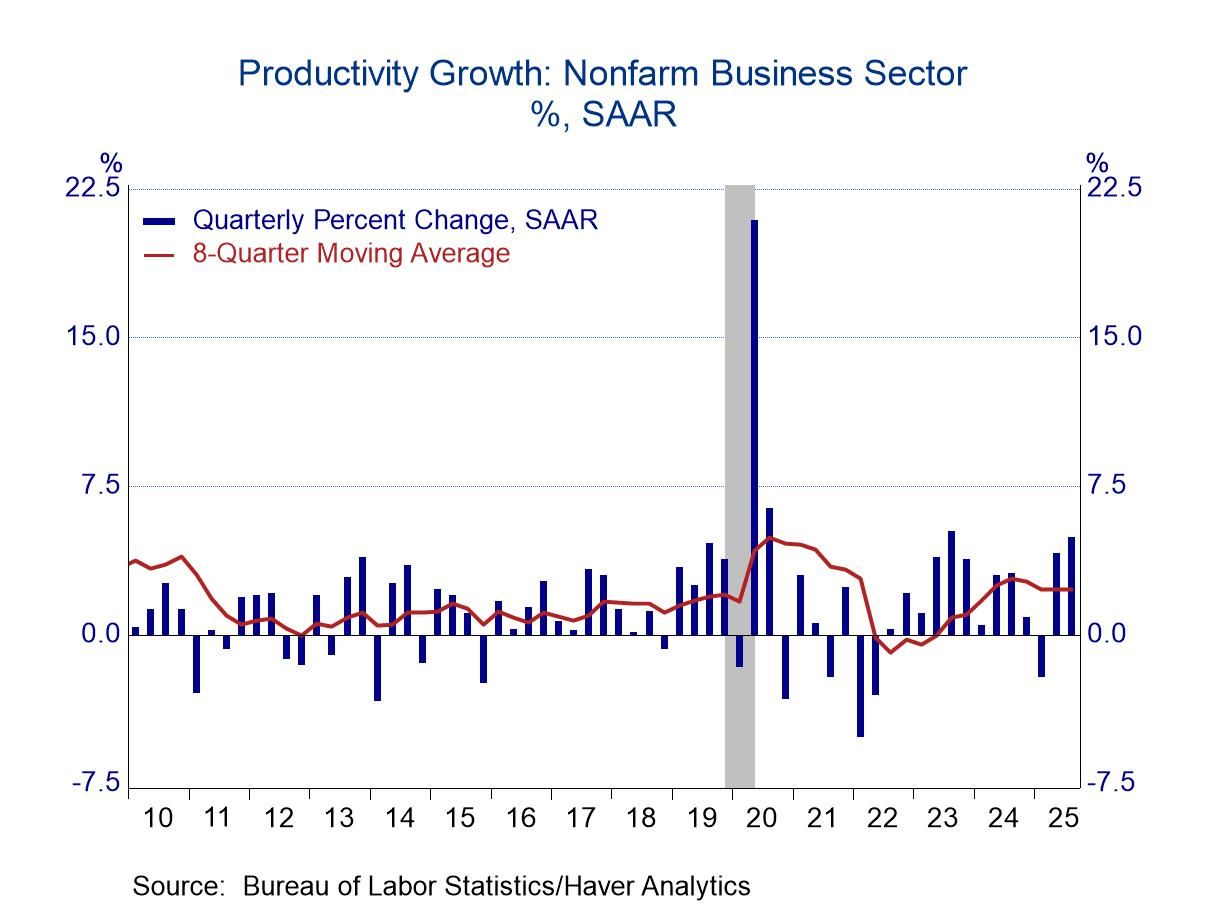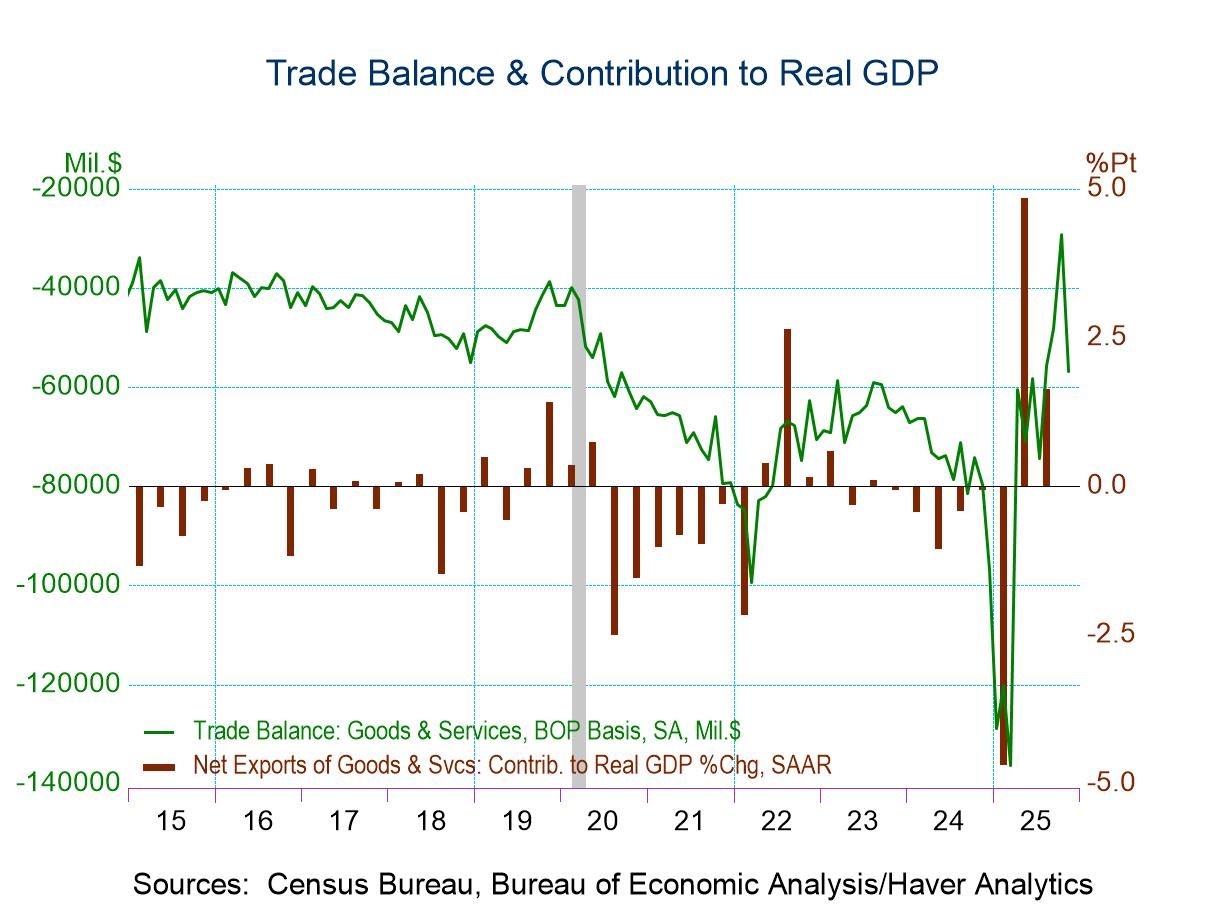 Global| Feb 11 2011
Global| Feb 11 2011German Inflation Takes Root- How Much Risk Is There?
Summary
Germany's inflation trends are on a clear upward path. Yr/Yr the headline rate is now on the cusp of excess at 1.9%. The Bundesbank used to put 2% as the upper bound for inflation when it held the reins. Now the ECB maintains that [...]
 Germany's inflation trends are on a clear upward path. Yr/Yr the headline rate is now on the cusp of excess at 1.9%.
The Bundesbank used to put 2% as the upper bound for inflation when it held the reins. Now the ECB maintains that same
goal for zone-wide inflation. But Germany is the most advanced in the business cycle, growing more strongly than other
countries in the Zone and with more inflation pressures building. After flirting with a rate hike threat Trichet has
backed off. That seems to be a decision to let German inflation fester.
Germany's inflation trends are on a clear upward path. Yr/Yr the headline rate is now on the cusp of excess at 1.9%.
The Bundesbank used to put 2% as the upper bound for inflation when it held the reins. Now the ECB maintains that same
goal for zone-wide inflation. But Germany is the most advanced in the business cycle, growing more strongly than other
countries in the Zone and with more inflation pressures building. After flirting with a rate hike threat Trichet has
backed off. That seems to be a decision to let German inflation fester.
This policy tact at the ECB seems too imply that inflation in Germany will top the Bundesbank's old line of demarcation at 2%. I wonder if this in some way affected Axel Weber's willingness to take the top job at the ECB? He seemed to want it and to be running for it and to be the clear lead candidate when he instead dropped out of the running. Granted there may be personal reasons of which we are not aware. But it is fair to wonder if he decided that he did not want to be the head of the ECB later this year with inflation in Germany brimming over and yet with inflation in the zone relatively well contained.
It is clear that there is a dichotomy in the Zone and that one monetary policy right now does not suit all. While Germany has some fiscal restraint in play, the fiscal restraint in other EMU countries is much more binding and the underlying economies elsewhere are weaker. What would happen if the ECB lead by a German were to seem to make policy for conditions in Germany instead of in the Zone? On the other hand what if a non-German headed the ECB and ran a policy that was somewhat the same? It may be possible for a non-German to run a tighter ship at the ECB with less political fallout due to the emerging growth differences in the Zone.
Labor contracts in Germany (set to go into effect next year) already are giving workers more pay. Thus the German inflation situation is getting some structural support for higher prices. This next stint at the ECB could prove to be the most difficult one. Wim Duisenberg proved to be up to the task of being the first ECB head. Under Duisenberg and Trichet the ECB has held inflation to a level that is within its mandate. Under Duisenberg there were strains but mostly good times. Trichet has had to deal with economic setbacks and difficult policy adjustments in a recession and a financial crisis.
But his successor will be easing himself into a hot-seat of policymaking. The fiscal rift in the Zone has not been bridged. The German faction will want rates up sooner. The rest of the zone will not. Yet, the last thing the ECB will want is for inflation to take root in its inflation-fighting stalwart, Germany. Still policy will have to accede to the needs of other countries. It could be a difficult patch ahead for the next ECB head...and who will that be?
Robert Brusca
AuthorMore in Author Profile »Robert A. Brusca is Chief Economist of Fact and Opinion Economics, a consulting firm he founded in Manhattan. He has been an economist on Wall Street for over 25 years. He has visited central banking and large institutional clients in over 30 countries in his career as an economist. Mr. Brusca was a Divisional Research Chief at the Federal Reserve Bank of NY (Chief of the International Financial markets Division), a Fed Watcher at Irving Trust and Chief Economist at Nikko Securities International. He is widely quoted and appears in various media. Mr. Brusca holds an MA and Ph.D. in economics from Michigan State University and a BA in Economics from the University of Michigan. His research pursues his strong interests in non aligned policy economics as well as international economics. FAO Economics’ research targets investors to assist them in making better investment decisions in stocks, bonds and in a variety of international assets. The company does not manage money and has no conflicts in giving economic advice.






